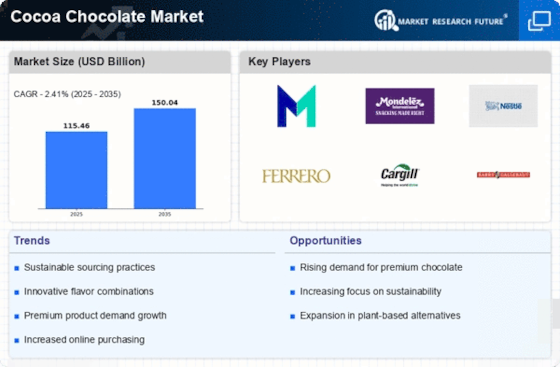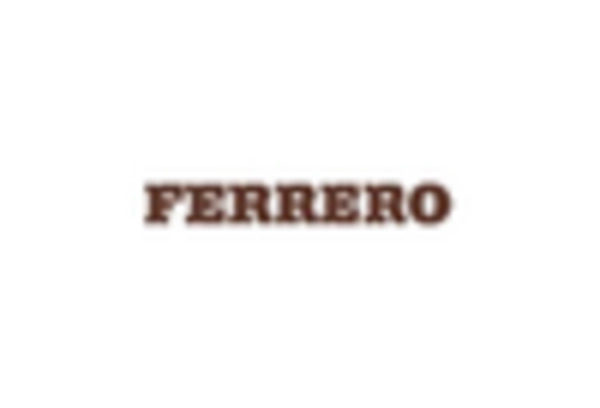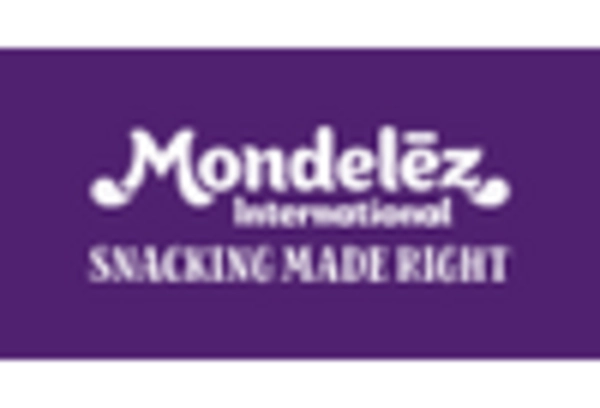Market Trends
Key Emerging Trends in the Cocoa Chocolate Market
The cocoa chocolate market has experienced dynamic shifts in recent years, reflecting changing consumer preferences and industry innovations. One notable trend shaping the market is the increasing demand for premium and artisanal chocolates. Consumers are seeking high-quality cocoa chocolates with unique flavors, ethically sourced ingredients, and exquisite craftsmanship. This trend has led to the emergence of artisan chocolatiers and premium chocolate brands that focus on delivering a superior and indulgent chocolate experience.
Health-conscious consumers are driving the trend towards dark chocolate and products with higher cocoa content. Dark chocolate is perceived as a healthier alternative due to its potential antioxidant properties and lower sugar content compared to milk chocolate. As awareness of the health benefits of cocoa increases, consumers are gravitating towards chocolates with higher cocoa percentages, contributing to the growth of the dark chocolate segment within the market.
Sustainability and ethical sourcing have become key considerations for consumers in the cocoa chocolate market. With increasing awareness of environmental and social issues related to cocoa production, consumers are seeking chocolates that are sourced responsibly and support fair trade practices. Chocolate manufacturers are responding by investing in sustainable sourcing, transparent supply chains, and certifications such as Fair Trade and Rainforest Alliance to assure consumers of their commitment to ethical and environmentally friendly practices.
Flavor innovation is a significant trend in the cocoa chocolate market, driven by a desire for unique and exotic taste experiences. Chocolate makers are experimenting with a variety of flavor profiles, incorporating ingredients like spices, herbs, fruits, and botanicals to create distinct and exciting chocolate varieties. This trend appeals to adventurous consumers looking for novel flavor combinations beyond traditional chocolate offerings.
The rise of premiumization extends beyond just taste, as consumers are increasingly interested in the storytelling and origin of their chocolate. Single-origin chocolates, which emphasize the specific geographic location of the cocoa beans, have gained popularity. This trend aligns with a broader consumer desire for transparency in food production and a connection to the origin and journey of the products they consume.
Functional ingredients and health-conscious formulations are influencing product development in the cocoa chocolate market. Manufacturers are incorporating ingredients like probiotics, adaptogens, and superfoods into chocolate formulations, aiming to position their products as not only indulgent treats but also functional and health-promoting snacks. This fusion of taste and health benefits caters to consumers seeking guilt-free indulgence and aligns with the broader trend of functional foods in the market.
In response to changing consumer lifestyles and preferences, there is a growing market for innovative chocolate formats. Snack-sized portions, on-the-go packaging, and individually wrapped chocolates cater to consumers looking for convenient and portion-controlled options. The cocoa chocolate market is witnessing the introduction of bite-sized treats, chocolate-covered snacks, and resealable packaging to meet the demands of busy, on-the-move consumers.
E-commerce and online sales have become significant channels for the cocoa chocolate market. The convenience of online shopping has allowed consumers to explore and purchase a wide range of chocolate products from different regions and brands. Chocolate companies are investing in digital marketing, online platforms, and direct-to-consumer sales strategies to reach a broader audience and capitalize on the growing trend of online chocolate purchases.


















Leave a Comment